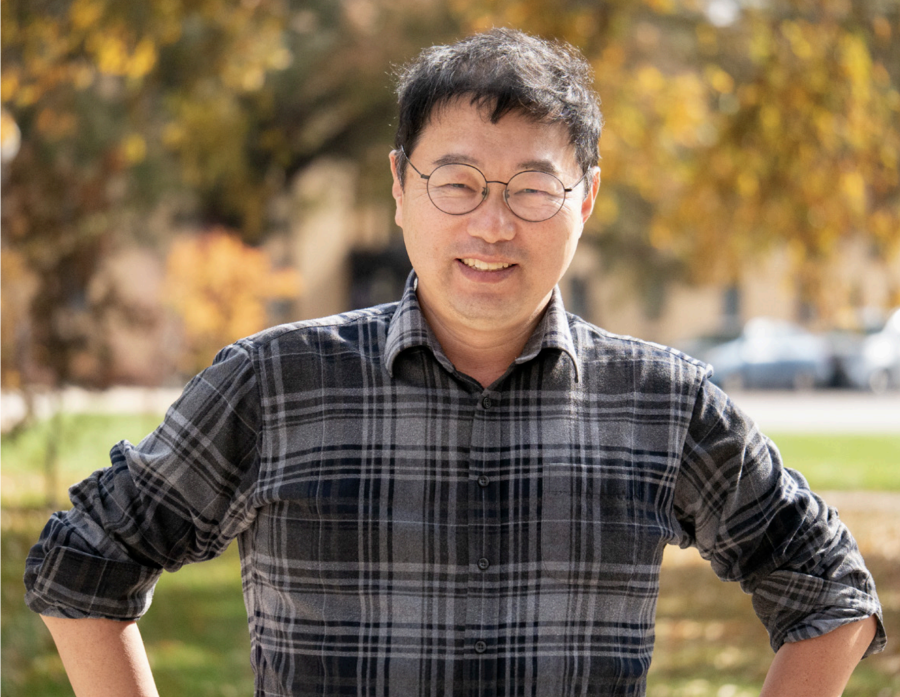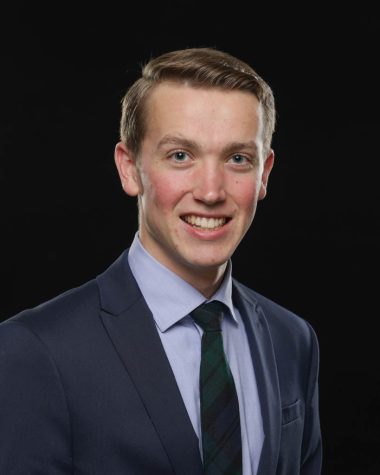As an international student, Jang YoonSik expected to experience a culture shock when he came to the U.S. Yet, although he faced many surprises, his time at Bob Jones University has been better than he imagined.
Before coming to BJU, Jang, a South Korean communication graduate student, worked as a teacher in Korea. Jang kept busy teaching 20-30 students each year, often working until midnight. “I was really burned out,” Jang said.
While an undergraduate Jang had tried to become a diplomat. He spent hours studying in the library every day and sacrificed other opportunities to take the exams used to screen applicants. The first test covered topics including English, international laws and politics and the Korean constitution and history.
After passing, Jang prepared for an essay test on similar topics. Jang was unable to pass the second test. So, he turned to teaching.
Things changed for Jang when he met a co-worker who shared the Gospel with him and ultimately led Jang to Christ. The co-worker’s wife, a BJU alumna, recommended that Jang come to the University. Jang said he thanks God he learned about BJU instead of going to a college somewhere else. “Otherwise, I might be in Alaska … fighting with … polar bears,” Jang said.
Jang was originally worried about what his experience in the U.S. would be like. “When I watch Hollywood movies, there are a lot of [curse] words and many gunshots and ethnic/ racial discrimination,” he said. However, instead of the hostile environment he expected, Jang was pleasantly surprised by the positive Christian culture at BJU. He was impressed by the high quality education of the faculty, staff and students. “I really like Bob Jones,” he said.
The best part for Jang about studying communication at BJU is that he gets to practice English with native speakers. Although he learned some English in Korea, he struggled to learn proper pronunciation from his teachers, who were not native English speakers. For the first few months at BJU, he had trouble understanding the professors and other students. “I couldn’t understand a word,” said Jang. “I needed to pretend to know English in many cases when I first came here. … It was not easy.”
However, Jang is grateful for the personal help he received. In particular, he is thankful for Dr. Grace Hargis, a professor in the Division of English Language and Literature, who personally coached Jang through his difficulties. “She asked me to come to her office and go to the problem areas,” said Jang. “She solved my problems on the spot!”
Between the heavy course load and his slower reading pace, Jang has to spend a lot of time studying. “I can say that [the] library is my second home,” he said. “If I can bring [a] blanket, the library might be my first home.”
Quarantining during lockdowns in the summer of 2020 came as a shock and disappointment to Jang, since he came to the U.S. to meet people and practice English with native speakers. However, he was able to continue his studies through Microsoft Teams and return to campus for in-person classes in the fall of 2020. “I’m thankful for my professors, for their sacrifice [and] devotion to continue their students’ studying,” Jang said.
After he graduates this December, Jang will return to South Korea to work as an English teacher. He plans to teach until he retires, then potentially move back to the U.S.—maybe even Greenville


























































